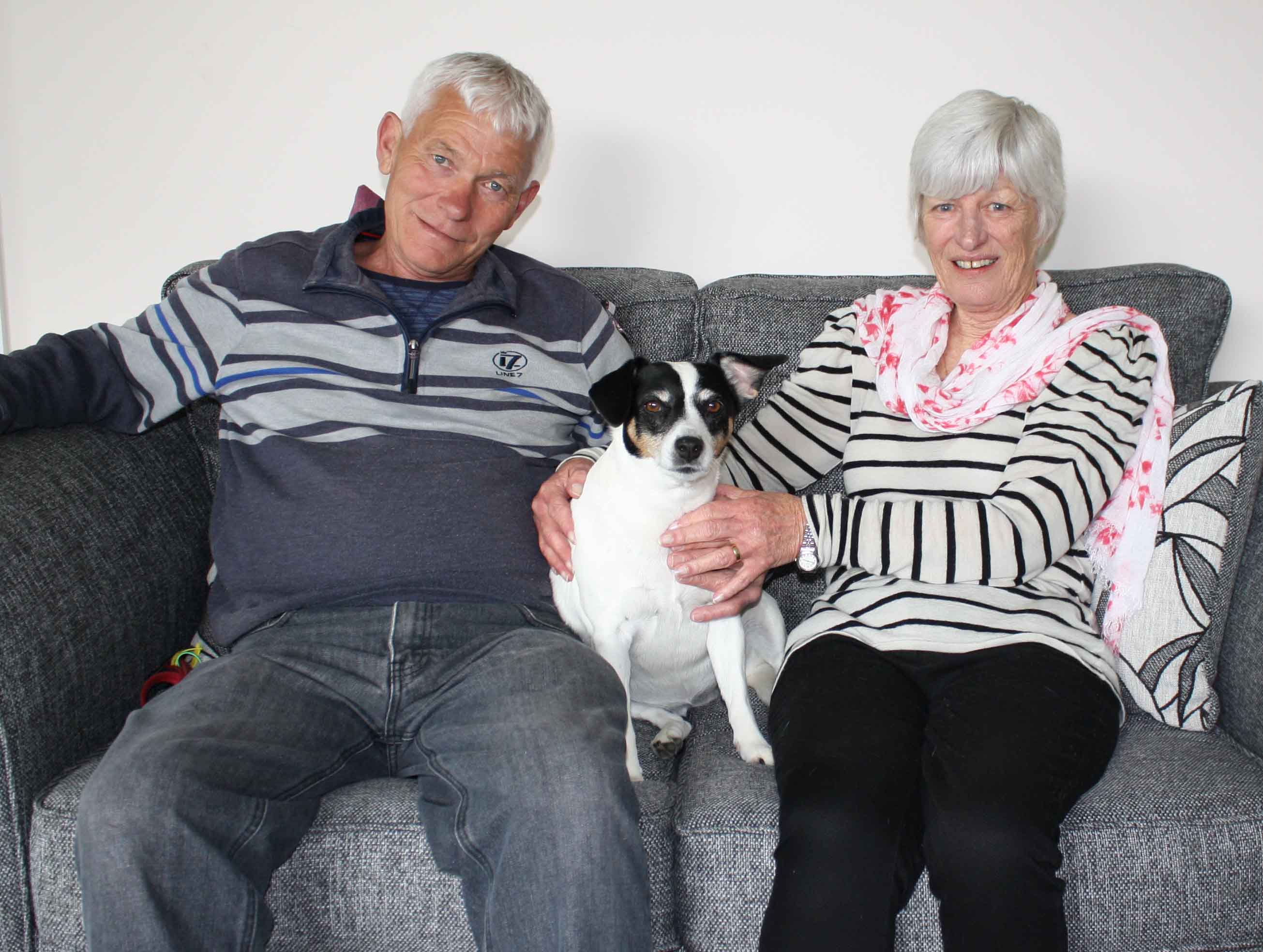
Brenda McColl of Lower Hutt, pictured with husband Jim and dog Cleo, was enjoying morning coffee at her home in April this year when she experienced a stroke.
“I didn’t feel any pain but I knew something had happened because I couldn’t use my left arm or leg.”
Her husband Jim noticed Brenda’s face seemed droopy and thinking she may have had a stroke called an ambulance. Brenda was taken to Hutt Hospital and was given clot-busting thrombolysis treatment.
“Within half an hour or so after the treatment began I was starting to move my leg and arm again,” says Brenda.
Brenda made a complete recovery from the stroke symptoms and stresses the need to get help quickly.
“Even though I’ve had a career in nursing and healthcare, at the time I couldn’t really judge how badly I was affected. It was my husband who insisted on calling the ambulance straight away.”
Health professionals in the Hutt Valley say a joint community effort to get help fast to people who experience a stroke is paying off.
Dr Marianne Falconer, Senior Medical Officer for Hutt Valley DHB, says excellent collaboration by stroke sufferers themselves, ambulance services and hospital staff is seeing more people receiving timely clot-busting treatment.
She says a system is in place to fast-track any patient who may have experienced a stroke.
“Ambulance services can alert the hospital emergency department before a patient arrives. This means hospital laboratory staff, radiologists, the acute medical team and stroke physicians are ready to work to get a quick diagnosis and start treatment immediately.
Over the last three months, the DHB’s clot busting thrombolysis treatment rates have risen to 19%, which is higher than the national average. This treatment breaks down and disperses a clot which is preventing blood flow to the brain.
However, Dr Falconer stresses people who become unwell and those around them at that time are the most important link in the system, and it’s vital that people know what stroke symptoms are and get help fast.
People who are treated within the first four hours of having a stroke have better recovery rates with the chances of a full recovery being much higher.
She says it’s also really important that people call for an ambulance rather than take themselves to the emergency department.
“Strokes can be caused by blood clots or bleeds in the brain and can affect any age group,” says Dr Falconer. “They are more common in older people who may have other medical conditions which make experiencing a stroke more likely. However, accidentally injuring the neck during sport or in a car crash for example, can also result in a stroke.”
“No matter the cause, it’s vital that people recognise the signs of a stroke and get help. Even if the symptoms fade or go away you should call 111 immediately.”
Around 200 people are treated at Hutt Hospital each year for stroke like symptoms. Not all strokes can be treated by thrombolysis and other stroke treatments can also be used.

